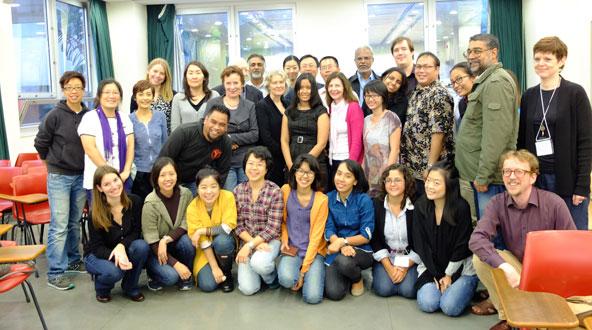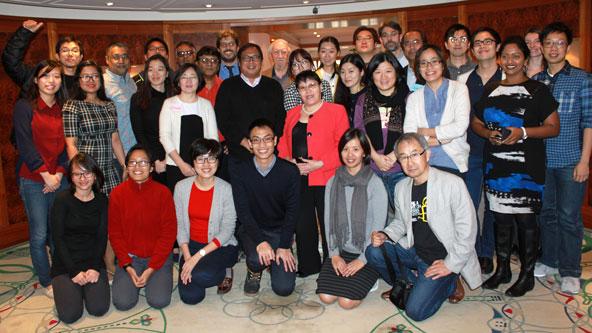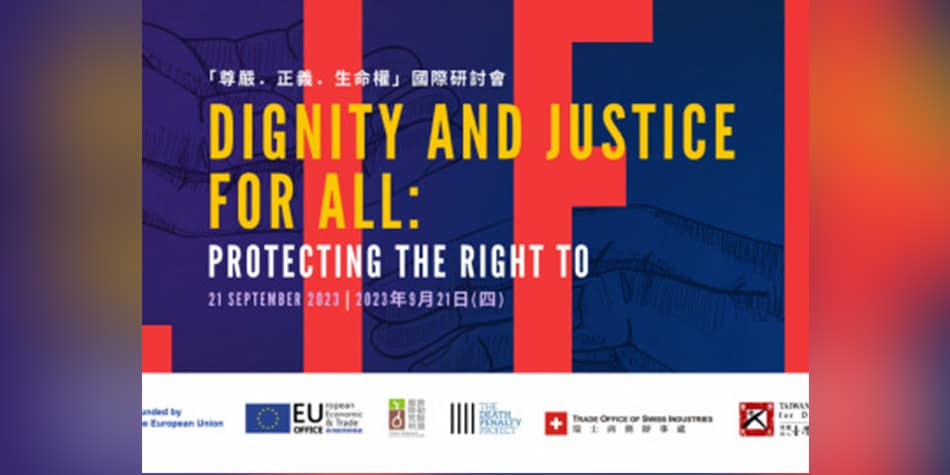
Building a death penalty-free future in Asia
Asia
The Anti-Death Penalty Asia Network (ADPAN) held its Third Consultative Meeting in Hong Kong between 23 and 25 November 2012.
The main aim of the meeting was to discuss the future of ADPAN and its potential long-term activities and issues to focus on in the coming years. The event was also a good opportunity for the participants to share experience and good practices for abolition of the death penalty in the region.
The need for transregional work led by Asians in Asia
Louise Vischer, the coordinator of ADPAN, spoke about the evolution of ADPAN since its creation six years ago: “The growth of ADPAN has been spectacular. From 15 members in 2006, ADPAN has now over 70 members, whether they are individuals or organizations, in 26 countries.”
Since 2006, progress made in Asia includes fewer executions in the region, a growing movement led by Asian civil society, bar associations coming out against the death penalty (in Malaysia and Japan) and progress made in individual countries.
For example, Mongolia has established a moratorium on the death penalty and ratified the Second Optional Protocol for the abolition of the death penalty. China and Vietnam reduced the number of crimes punishable by death and Malaysia and Singapore are moving toward limitation of the mandatory death penalty for drugs.
Members of APDAN all agreed that they wanted the network to play a bigger role in the region and discussions about ADPAN’s future were particularly constructive. They made it clear that ADPAN should be focusing on sharing more information, experience and strategies, but with Asian references; and that it should organise joint actions to show that there is cross-regional support and to influence the trend towards abolition of the death penalty in the region.
They also identified cross-regional issues where ADPAN could have an added value such as terrorism, drug offenses, mandatory death penalty, unfair trials, religions, migrant workers, legal support and ASEAN.
An ongoing debate in Asia
The meeting took place during the difficult context of executions resuming in Pakistan and India after a suspension of four and eight years respectively. All the participants were aware of the challenges that lay ahead, but they believed that by sharing experiences from the region, they could change things in their countries.
Sinapan Samydorai of the Think Center spoke about the recent debate around drug issues in Singapore and how it may influence Malaysia. “It was the first time there was a full debate about the death penalty in the Parliament, and the first time some Members of the Parliament actually called for abolition. But it was voted really quickly to avoid media and public attention,” he said. “Campaigning in Asia is about consistency and long term planning.”
Ngeow Chow Ying, from the Malaysia Campaign, talked about its chosen strategy of starting the campaign by focusing on one single case to raise awareness and change public opinion. “We started the Save Yong Vui Kong Campaign because this case represented all the problems of the death penalty in Malaysia, such as the problem of access to justice, especially for foreigners and poor people.”
Challenges
Others spoke about the challenges they face. Sutharee Wannasiri of Amnesty International Thailand said that her country had adopted the abolition of the death penalty in its Human Rights Action Plan in 2009, but that no action had been taken since then. “There has been no debate in parliament, and Thailand rejected all the death penalty abolition recommendations made during its Universal Periodic Review by the UN Human Rights Council,” she said.
In China, the lack of independence of judges and bar associations and the control of the media by the government make it very difficult for civil society to educate people.
In total, 41 participants from 19 different countries attended the meeting. These include representatives of organisations and individual members from Australia, Bangladesh, China, Hong Kong, India, Indonesia, Japan, Malaysia, Mongolia, Pakistan, Philippines, Singapore, South Korea, Taiwan and Thailand.







